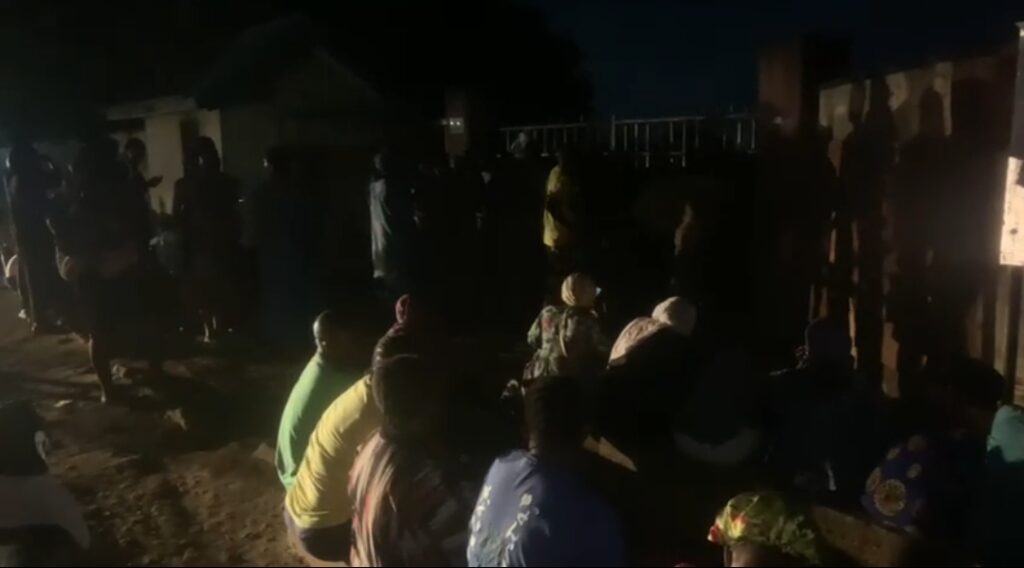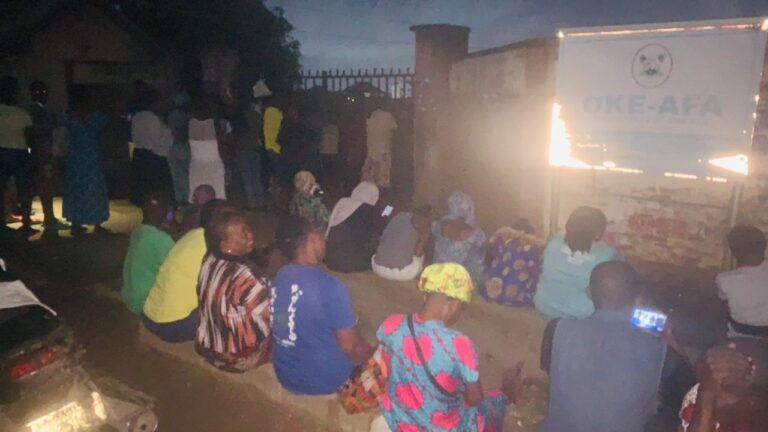It was a chaotic scene across several examination centres in Nigeria on Wednesday, 28 May, as candidates sitting the West African Senior School Certificate Examination (WASSCE) were left stranded and confused over a shocking delay in their English Language paper.
DevReporting gathered that thousands of candidates nationwide were made to wait as the exam failed to kick off at the scheduled time. At some centres, candidates were still writing as late as 11:45 p.m.
Candidates were seen using torch lights to illuminate their centres, as most school compounds were in total darkness.
A candidate from a Lagos school told DevReporting that the objective question paper, originally scheduled for 9.00 a.m., did not commence until noon, and the third paper was scheduled to take the place of the second paper, while the third paper for the day did not start until 10:00 p.m.

At Oke-Afa Senior College in Ejigbo, Lagos, students were still grappling with their examination scripts as late as 11:45 p.m., while anxious parents waited in disbelief outside the school gate.
The situation, which left parents fuming and social media buzzing, was the same in many parts of Oyo, Osun and Ogun states, South-west Nigeria.
What went wrong?
Sources told DevReporting that the English Language paper was leaked online, prompting the examination body to cancel it at the last minute and scramble for a replacement.
A teacher in Ogun State, who requested anonymity, confirmed that the paper had been compromised. “I think the council had to make alternative arrangements, which caused the delay,” she said.
Meanwhile, several claims have emerged on social media regarding the cause of the delay, with some users alleging that a WAEC official leaked the English question paper online due to poor remuneration.
An X user, Shevy Jonjo, posted: “The exam was leaked, and it’s the same people within the institution who leaked it. Most of the top officials in WAEC and JAMB own private schools, and they perpetrate these malpractices for money, leaving innocent children to suffer the consequences. Proper shame.”
Commenting under a Facebook post by an educationist, Alabi Dare, Lukmam Ibrahim, alleged that a financial crisis within the council has pushed some officials to compromise ethical standards.
Responding to the post, which called for a probe into the English examination, Mr Ibraheem wrote: “Same here in Oyo State. WAEC is having financial issues with their staff, and that’s why the questions have been leaking since the beginning of this year’s WAEC examinations.”
Like JAMB, WAEC apologises
In a swift reaction, WAEC has issued an apology to candidates, schools, parents and all stakeholders, acknowledging the challenges encountered in administering the English Language papers.
The registrar of the Joint Admissions and Matriculation Board (JAMB), Is’haq Oloyede, a professor, on 14 May, broke down in tears as he offered an apology for the technical errors in the 2025 UTME. Following the errors, over 300,000 candidates across 157 centres in Lagos and Owerri zones were made to resit the examination.
According to a statement issued by WAEC’s Acting Head of Public Affairs, Moyosola Adesina, the delay stemmed from WAEC’s intensified efforts to prevent any leakage of examination materials, “a priority that, while successful, inadvertently disrupted the timely and smooth conduct of the exam.”
“While we successfully achieved our objective of maintaining the integrity and security of the examination, it impacted the timeliness and seamless conduct of the English Language paper,” the statement read.
Mrs Adesina further explained that it encountered a combination of logistical hurdles, security concerns, and sociocultural factors, all of which negatively affected its operations on the day of the exam.
To avoid a repeat of such incidents, the council noted that it is currently working closely with security agencies.
“We recognise the importance of timely conduct of examinations and the impact of this decision on the candidates, their schools and parents, and we sincerely apologise for any inconvenience caused,” she said, reaffirming the council’s commitment to upholding the highest standard and excellence in the conduct of examinations across West Africa.


